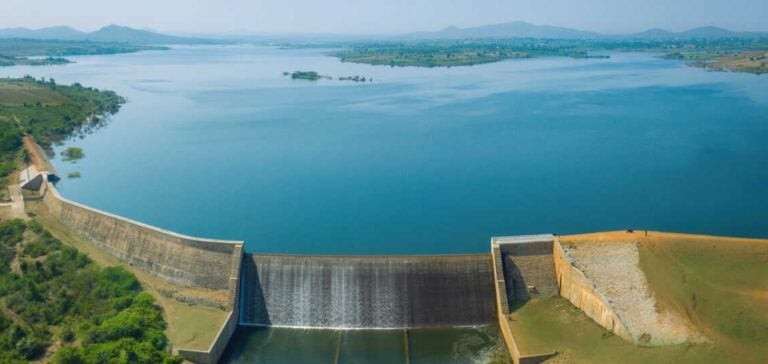Hydropower is likely to be one of the world’s most important sources of renewable energy – as we mentioned in our Top10 largest dams in the world in 2024. To these we can no doubt add the brand-new Dibang hydroelectric dam project in India. The 2.88GW project is designed to meet India’s growing electricity needs, while providing significant socio-economic benefits for the northeast region. Located in the Lower Dibang Valley district, the 278-meter-high Dibang Dam embodies India’s ingenuity and ambition in the field of hydroelectricity. Moreover, this energy sector appears to be a pillar of the transition.
An ambitious project
With an estimated cost of over 3.85 billion dollars, the Dibang project will not only provide a clean, renewable energy source, but will also serve as an energy storage and flood protection mechanism. The dam will be built over a period of 108 months, providing direct employment for 500 people during the construction phase and a further 300 during the operational phase.
Regional and international impact
The electricity trade agreement between India and Nepal opens up new prospects for Nepal’s hydropower industry, strengthening regional cooperation and contributing to sustainable economic growth. The Himalayan rivers that run through Nepal have an electricity generation potential of 42GW, but due to a lack of funding and technical know-how, the country currently produces less than 3GW. The agreement aims to exploit this untapped resource and stimulate economic growth.
The Dibang project thus embodies India’s commitment to energy transition, providing an example of leadership in achieving global sustainable development goals. Its positive impact on energy, the environment and the economy makes it a crucial element in the energy future of India and the region.






















